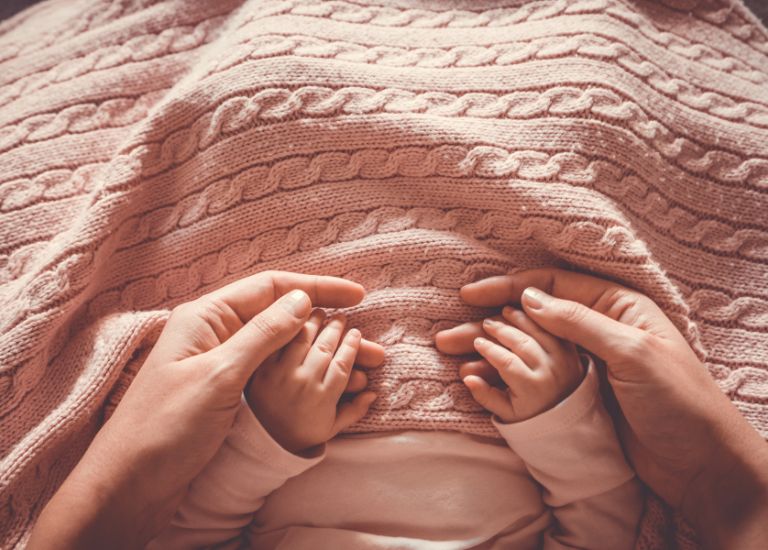Empowering Choices: Your Guide to Solo Motherhood

Disclaimer: this website does not provide medical advice. Articles are for informational purposes only and should not be used as a substitute for professional medical advice, diagnosis or treatment. Always seek the advice of your physician or other qualified healthcare provider with any questions you may have regarding a medical condition or treatment, and never disregard professional medical advice or delay in seeking it because of something you have read on this website.
Introduction
A few weeks ago we wrote an article on deciding to become a mum in your 50s, which is a choice available to women these days if they have frozen their own eggs or are open to using donor eggs. That article was very popular and, as a lot of our readers are under 50, we decided in this article to explore the decision to become a solo mum, which is an option many women choose these days.
As always, we’d like to point out that we are not medical experts nor are we experts in fertility. Some of our team have had their own journeys in this area and that is where we draw our knowledge from. However, there are lots of places where you can get expert opinion and we will share these with you throughout the article.
Why choose to become a solo mum?
Everybody is different and we don’t want to generalise but we suspect that the main reason is not having found a partner to co-parent with. However, there are women whose main preference is to be a solo parent.
Any woman making this choice has probably thought very deeply about it because there are many aspects to consider and it is a major life choice. We’re going to go through what we think are some of the main areas that need to be examined or that women have concerns about when making this life choice.

The grieving process we go through to accept solo parenting
Counselling or some form of therapy may be worth considering. We are thinking of the Kubler-Ross model, with the stages of denial, anger, bargaining, depression and acceptance, which allows those that go through it to come to an acceptance of their new situation.
When we think about grieving, two specific situations outlined below come to mind, but there can be other models.
- The loss of the dream of a “nuclear family” – it is very common to grow up believing that we will get married and have children and, if that doesn’t happen, it can be helpful to acknowledge a grieving process that allows you to let go of this vision and to come to terms with and be excited about a different picture of how your life will be.
- Loss of our own genetic material – this is when we cannot use our own eggs and have to use a donor. The vast majority of us assume that, if we have children, they will be our biological children and, for most people, accepting that our child will not be our genetic offspring is a process.
Can I use my own eggs?
Luckily, in modern times, egg freezing has become very popular, so many who wish to become solo mums will either be young enough to use their own eggs or will have frozen their own eggs at a younger age.
For many reasons, women have to use donor eggs, including early menopause, having had cancer treatment which affected fertility or simply being older. By the time you are in your early 40s, most of your eggs are chromosomally abnormal. You still can be successful in becoming pregnant, particularly when you use PGT, a technique where embryos created during the IVF process are tested and only ones that are chromosomally relatively normal are used. But, unfortunately, as we approach our mid-40s our chances of getting pregnant with our own eggs are very low.
If you are thinking about becoming a solo mum, the first step for you might be to make an appointment with a fertility clinic near you that has a good reputation. They can do a fertility check, which involves checking hormone levels and looking at ultrasound images of your uterus, and they will advise you of the best course of treatment for your circumstances.
If I need donor eggs, how to I access these?
The Seeoran team are based in Ireland so this article is written with Europeans in mind. However, it is not uncommon for non-EU nationalities to use clinics in Europe because age cut offs may be higher than in their country or ease of access to surrogacy or donor egg.
The biggest consideration when using any kind of donor is whether they identifiable or non-identifiable. The laws in some countries now specify that only identifiable donors can be used as it is deemed a child’s right have access to information on their donor when they are older.
The problem with making it mandatory for egg donors to be identifiable is that fewer women are interested in donating, and it has created a shortage of donor eggs and waiting lists in countries where this law exists, such as the UK.
It may be easier to travel to countries who do not have this law in place (at the time of writing this article) such as Spain, Cyprus, the Czech Republic and Greece. These countries have many excellent IVF clinics and treat women up to the ages of 54. For more details on age limits, check out our article The Pros and Cons of Women Having Babies in Their 50s

How do I choose a sperm donor?
Most people buy donor sperm from banks such as the European Sperm Bank, which offer both identifiable and non-identifiable sperm. As mentioned above, if you have treatment in a country that requires identifiable donors, you will have no choice but to go for that option.
The other option is using a known donor, such as a friend. This option has its pros and cons and it may be best to get legal advice on it. One of the problems with it is the potential to withdraw consent. So, for example, if you go through IVF and a number of embryos are created, you might use one and have two more in storage. The circumstances of the known donor could change – for example, they get a new partner who doesn’t like the idea of them having biological children – and they withdraw their consent, preventing you from using the remaining embryos.
The plus side of using a known donor is that the child will know who their father is and maybe able to have a relationship with them.
Concerns about being an older mum
By the time women have decided to be a solo parent, they are often in their forties and it is natural to be concerned about being older than other parents, how the child might feel about that and potential judgements from other people.
Our view is that parental ages are trending upwards and women having babies in their 40s and even 50s is becoming increasingly common. Arguably, there are lots of reasons why older people make very good parents. They have a lot of life wisdom, they tend to be stable financially and emotionally, and they may be more patient.

How I will cope as a single parent?
Life as a single parent is hard for the first few years and it is preferable to have a good support system in place. But the reality is that lots of people do it and they manage. As humans, we are very good at adapting. A new baby is a radical change in anyone’s life and we find ways to cope. The first few years will be very intense but, if we dream of creating our own family, it is a journey we have to undertake.
How will donor conception affect the child?
One of the big questions is how being donor conceived affects the child. One of the best resources we have come across is the Donor Conception Network, based in the UK. They provide amazing resources including workshops, webinars, local support groups and books for both adults and donor conceived children.
Every person is different but generally speaking donor conceived children can be at peace with their origins. Some ideas for helping with this are –
- Start telling them the story as early as possible so they don’t remember when they were told.
- Tell them the story often when they are young – the Donor Conception Network have childrens’ books to explain their conception story – so keep this in the child’s library and read it as their bedtime story every now and then.
- Introduce the idea of the donor as a kind person who wanted to help other people have children. They didn’t want to be the parent – they wanted to help other people like you become parents.
- Don’t tell them not to tell other people – asking them to keep it a secret implies some kind of shame about the situation. Allow them to be open about it.
- Explain to them that there are all kinds of families – some have dads and some do not.
- Normalise your situation as much as possible – if you can, join groups with other donor conceived parents and children and go to social events with them.
- Explain how much you love them – you really wanted to have them in your life so you decided to undertake this journey.
The above are suggestions and you need to figure out your own approach. Our understanding is that hiding the truth from donor conceived kids hurts them in the long run and can have a negative impact on your relationship with them.

Conclusion
The choice to become a single mother using donor conception is a big one. We’ve touched on some of the bigger issues but there is more to it and we would recommend doing your own research.
An area we haven’t mentioned is tracking down donors in the future and finding half siblings. Many donor conceived children use the genetic websites like 23andme.com to do this.
We also haven’t mentioned surrogacy as it is a very big area and not something we can cover here.
Recently, there is a lot of talk about being child free by choice – and we respect everyone’s journey. But the experience of being a parent is very rewarding – yes, its hard but it can be very fulfilling and your relationships with your children can be very beautiful.
So if you are older and thinking of becoming a single mum, sign up for a Donor Conception Network webinar. They are held online and people join from all over the world. The facilitators are women with donor conceived children and the participants are women that are thinking about this option.
Would you consider being a solo mum? If you have done it, what is your experience? How do you feel about donor conception?
